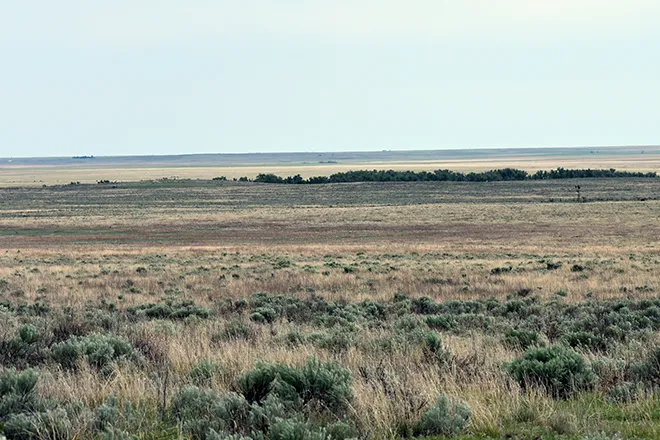
20 state AGs sue feds for tying transportation and disaster funding to immigration enforcement
There’s no reason why money for road repairs and flood protections should hinge upon states’ cooperation with federal immigration policies, contend 20 Democratic states attorneys general.
That’s why the AGs are asking a federal judge to stop federal agencies from a “grant funding hostage scheme” that requires detaining undocumented immigrants who don’t commit crimes in order to receive key federal grants and aid.
Two new federal lawsuits filed in U.S. District Court in Rhode Island Tuesday against the U.S. Department of Homeland Security (DHS) and U.S. Department of Transportation (DOT) aim to protect and preserve billions of federal dollars already awarded to states for emergency preparedness, disaster relief and infrastructure projects.

© ISerg - iStock-1333705544
Directives issued in April by DHS and DOT secretaries informed states that their federal funding required compliance with federal immigration policies. The AGs — representing Colorado, Connecticut, Delaware, Hawaii, Maine, Massachusetts, Michigan, Minnesota, Nevada, New Mexico, New York, Oregon, Washington, Wisconsin and Vermont — allege this violated constitutional protections for separation of powers.
“By hanging a halt in this critical funding over States like a sword of Damocles, Defendants impose immense harm on States, forcing them to choose between readiness for disasters and emergencies, on the one hand, and their judgment about how best to investigate and prosecute crimes, on the other,” the lawsuit against DHS, the Federal Emergency Management Agency (FEMA) and the U.S. Coast Guard, and their leaders, states.
“Defendants’ grant funding hostage scheme violates two key principles that underlie the American system of checks and balances: agencies in the Executive Branch cannot act contrary to the authority conferred on them by Congress, and the federal government cannot use the spending power to coerce States into adopting its preferred policies. Defendants have ignored both principles, claiming undelegated power to place their own conditions on dozens of grant programs that Congress created and bulldozing through the Constitution’s boundary between state and federal authority.”
The AGs say state and local public safety officials have more important work to do than cater to the whims of a new administration, which stand in contradiction to state-level directives like, for example, authorizing licenses for undocumented immigrants. Rhode Island lawmakers granted driving privileges for undocumented residents in 2022, with a July, 1 2023 effective date, joining 19 other states and D.C.

Federal protocols followed by U.S. Immigrations and Customs Enforcement (ICE) and other agencies could force state and local police to use state license laws as a way to find and detain undocumented immigrants.
“As a former U.S. Attorney and former federal prosecutor, I know how many ICE agents are in Rhode Island and it’s under 10,” Rhode Island Attorney General Peter Neronha, said during a virtual news conference Tuesday. “What they need in order to carry out their agenda is for us to do the work for them, pulling us away from important law enforcement work in Rhode Island.”
No state has seen federal funding cut off since directives were issued by U.S. Homeland Security Secretary Kristi Noem and U.S. Transportation Secretary Sean Duffy. Not yet.
States’ abilities to respond to natural disasters and security threats, and complete key infrastructure projects, including the much-anticipated rebuild of the westbound Washington Bridge in Rhode Island, hinge upon a continued flow of congressionally authorized federal grants and aid.
The $221 million Biden-era infrastructure grant awarded to Rhode Island for the Washington Bridge project only became accessible in late March, after weeks of uncertainty in the wake of the administration change. Gov. Dan McKee’s office and the Rhode Island Department of Transportation did not immediately respond to inquiries for comment Tuesday regarding continued access to the funds in the wake of Duffy’s April 24 directive tying federal infrastructure grants to compliance with federal diversity and immigration policies.
The Duffy directive fails to provide any statutory or legal explanation for why transportation funding relates to immigration enforcement. The new requirements jeopardize more than $628 million in federal funding in Rhode Island, and billions of dollars more across the country, the AGs argue in their lawsuit against Duffy and DOT.
“If Plaintiff States reject Defendants’ unlawful Immigration Enforcement Condition, they will collectively lose billions in federal funding that is essential to sustain critical public safety and transportation programs, including highway development, airport safety projects, protections against train collisions, and programs to prevent injuries and deaths from traffic accidents. The loss of this funding will cause state and local providers to scale back or even terminate many of these programs and projects,” the complaint states. “More cars, planes, and trains will crash, and more people will die as a result, if Defendants cut off federal funding to Plaintiff States.”

Similarly dire predictions accompany the loss of security and disaster funds, which includes $3 billion in FEMA money to states each year, according to the lawsuit against DHS. Rhode Island received more than $45 million in FEMA grants in 2024 alone, according to the lawsuit.
The new complaints reprise language of the 20 state AG lawsuits against the Trump administration that preceded them, calling the executive agencies’ actions “arbitrary and capricious” and in clear violation of constitutional separation of powers and spending clauses.
Neronha during the press conference pointed to the success that AGs have had in other lawsuits, temporarily preserving funding and policy protections for education, immigration, research funding, public health, and grants and aid to state governments, among others.
Not that he expects the frenzy of legal activity will abate anytime soon.
“As we stack wins against the Trump administration for violation of the Constitution and other federal laws, what we are seeing is a creeping authoritarianism in this country,” Neronha said. “The president is trying to take power for himself. He’s trying to sideline Congress, and now, he’s attempting to undermine the judiciary.”
Neronha likened the latest federal directives attempting to force states to redirect their own law enforcement to serve federal civil immigration policies to “holding a gun to states’ heads.”
Rhode Island, home to four of the 20 federal lawsuits against the Trump administration already, was again picked as the setting for the latest complaints due to the “strong team” within Neronha’s office, he said.
Neronha and other AGs bringing the two cases against the administration also stressed the sum of their collaborative parts.
“We’ve built the best and biggest law firm in the country, and we’re fighting for all Americans,” Neronha said.
The U.S. Department of Justice did not immediately respond to requests for comment on Tuesday.
The lawsuit against DOT was assigned to U.S. District Chief Judge John Jr. McConnell Jr., while the case against DHS was assigned to Senior District Judge William E. Smith, according to the public court docket.
















